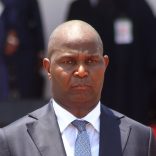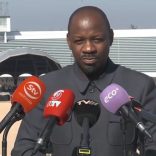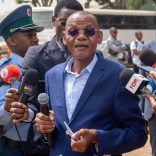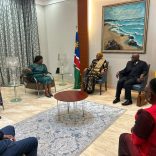Mozambique: Delay in approving Mondlane's party result of "many processes" with similar requests
Cabo Delgado: “Frelimo is again fighting for independence,” says Joseph Hanlon

File photo: DW
DW Africa interviewed British investigator and expert in Mozambican politics, Joseph Hanlon, about different aspects of the insurgency in northern Mozambique, now taking on new shapes.
The actions of armed men, who now identify themselves as members of the Islamic State (IS), erupted in Cabo Delgado province in October 2017.
DW Africa: How do you evaluate the way the Mozambican government is dealing with the insurgency in Cabo Delgado?
Joseph Hanlon (JH): [It is dealing with the insurgency) By considering the case as a military problem. Frelimo is again fighting for independence. But on the other hand, by following the Portuguese model, instead of understanding why they [Frelimo] won.

DW Africa: There is already talk in the presence of Russians, South Africans, Zimbabweans serving the government in Cabo Delgado. Is this scenario viable in the long run?
JH: The Russians are gone. From South Africa only a drone and a few helicopters are there – useful, but limited [resources]. There is still no evidence of the presence of Zimbabweans. And no, mercenaries will not solve the problems.
DW Africa: It is believed that the insurgency may extend to other countries in the region. Would regional cooperation to combat this initial phase be desirable?
JH: No. Regional cooperation is seen as military or of security. It is necessary to create jobs.
DW Africa: Studies indicate that social inequalities are at the root of the insurgency. To solve this problem in the north, what would be needed, in addition to robust military actions?
JH: It is necessary to create millions of jobs.

DW Africa: Since there is no capacity for that, then will the insurgency be a long-term problem?
JH: Anadarko told the banks that they would bring in 15,000 Filipino workers. At least 5,000 Mozambicans could have been trained for these jobs, had they started the process five years ago. Likewise, they could have created value chains to feed this number of workers, but they did not. Take the case of the USA during the depression, when Roosevelt, under the New Deal, created thousands of jobs. Everything from planting trees to artists. Legalising artisanal mining would help to resolve the situation. There are many ways to move forward quickly. It is necessary to distribute the gas money to all villages.
DW Africa: Do you see similarities between this conflict and the 16-year war?
JH: Yes and no. The 1976-1992 civil war started as an external war – first Rhodesia and then South Africa tried to keep Frelimo under control. It was triggered by local discontent. In contrast, this [Cabo Delgado] war started because of local discontent and external forces took advantage of an already existing war to try to reformulate it.
DW Africa: There are reports that young soldiers are deserting or mingling among the population, without a uniform, so as not to fight the insurgents. Does this signal that young people are not aligned with the government’s objectives or is it just fear?
JH: A bit of both, I think.
DW Africa: Some gas projects have been halted. Do you think that the increase in violence could put an end to investments?
JH: Not by itself. Oil and gas companies have long-standing experience of operating in extremely violent contexts – such as in the Niger Delta, for example. But the very low prices of oil and gas are having unpredictable impacts and the war only contributes to that.













Leave a Reply
Be the First to Comment!
You must be logged in to post a comment.
You must be logged in to post a comment.